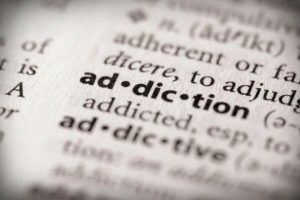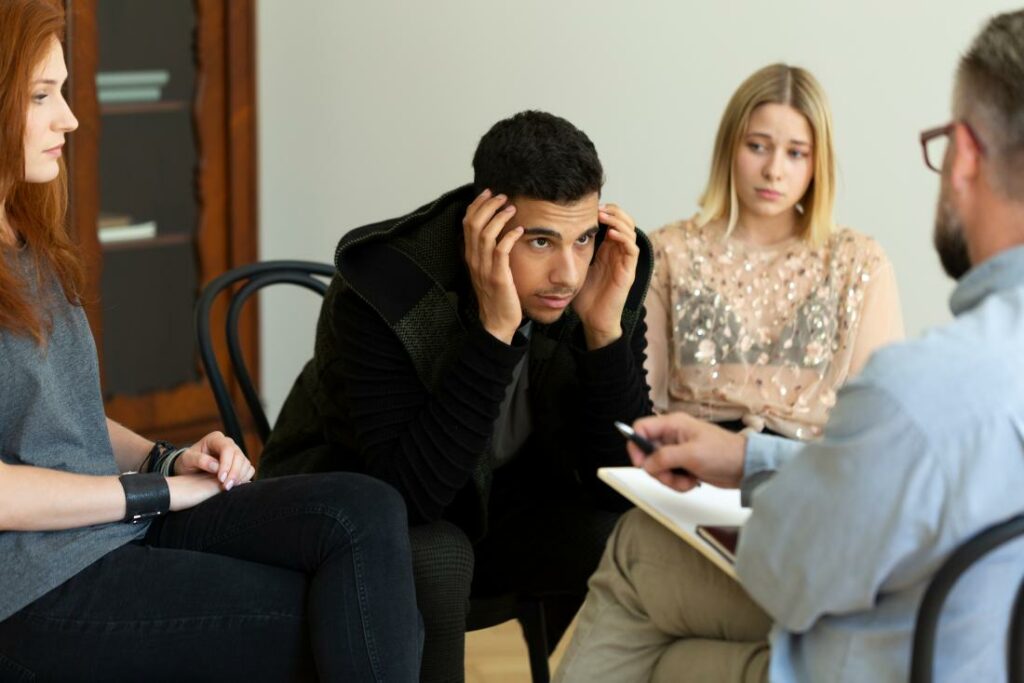If you’re married, chances are you know someone who is struggling with addiction. This is an epidemic that is affecting more and more couples, and it’s time to start taking action. In this blog post, we will discuss addiction counselling for couples and how it can help restore balance in your relationship. We will also provide tips on how to find the right counselor and how to make the most of your treatment.
Contents
What Is Addiction?

Addiction is a complex disorder that has been defined in many ways but generally refers to the intense and compulsive habit of using drugs or alcohol, despite negative consequences. Addiction can be physical, psychological, or behavioral. It is considered a condition that is chronic and relapsing, with a strong emotional component.
There are many different types of addiction, but all share some common features. All addictive behaviors involve an intense Want or craving for the substance(s) of abuse, along with negative consequences (such as social isolation or financial ruin). When someone becomes addicted to any type of substance/substance use it alters their brain chemistry in such a way that they start to feel pleasure when they indulge in the behavior and pain when they resist.
There are many reasons why people become addicted, such as genetics, mental health issues, and the environment. Addiction is not a moral failing – it is a medical condition that requires professional help to overcome.
How Does Addiction Affects Relationships?
Addiction affects relationships in a variety of ways. Individuals addicted to drugs or alcohol often neglect their responsibilities at home and work, leading to tension and conflict within the relationship. Addicts may also be unresponsive or antagonistic when their partner tries to communicate with them about problems. Addiction can also lead to infidelity, as addicts are often attracted to people who provide them with drugs or alcohol.
Addiction can also interfere with communication in other ways. People addicted to drugs or alcohol may find it difficult to articulate their feelings, making it difficult for partners to understand what is going on in the relationship. This can lead to frustration and hostility on the part of the addict’s partner. In addition, addicts may be unable to remember important details from conversations, making it difficult for the couple to build rapport. The addict’s behavior may also be disruptive, making it difficult for the partner to focus on their own needs.
Types of Addiction Counseling For Couples

There is no one-size-fits-all approach to addiction counseling for couples, as the severity of the addiction and the couple’s Individual Psychotherapy Treatment Plan (IPTP) will vary. However, some of the most common types of counseling for couples include:
Cognitive Behavioral Therapy
One of the most common types of counseling for couples is cognitive behavioral therapy (CBT), which focuses on understanding how thoughts and behaviors affect relationships. By recognizing patterns in behavior, individuals can better understand and address challenges within the relationship.
Family Counseling
Family counseling is also helpful for couples dealing with addiction as it provides an opportunity to explore family dynamics and how they may be contributing to addiction. This type of counseling focuses on improving communication and understanding between family members, as well as helping family members develop healthy coping strategies for dealing with addiction.
Group Therapy
Group therapy is another common form of counseling for couples. This type of therapy allows individuals to share their experiences with others in the same situation, which can provide insights and support. Group therapy also allows couples to practice communication skills and receive feedback from peers in a safe environment.
Dialectical Behavior Therapy (DBT)
Dialectical behavior therapy (DBT) is a type of counseling that focuses on helping individuals learn to regulate their emotions and behaviors, as well as improve communication skills. DBT helps couples identify patterns in their relationship and develop strategies for responding to difficult situations.
Acceptance and Commitment Therapy (ACT)
Acceptance and commitment therapy (ACT) is another type of counseling that helps individuals learn to accept their current circumstances and make decisions that lead to meaningful relationships. ACT focuses on identifying values, changing patterns in behavior, developing coping skills, and practicing healthy communication.
Mindfulness-Based Therapy
One of the newest additions to addiction counseling for couples is mindfulness-based therapy. This type of therapy helps individuals learn to be present and aware in their relationships, as well as focus on positive behaviors and communication skills. Mindfulness also helps individuals recognize when they are engaging in unhealthy or addictive behaviors, which can help them find healthier ways of coping with stress.
These mindfulness therapy techniques can help couples develop healthier ways of interacting with one another, as well as provide opportunities for them to work through issues in their relationship.
How Does Addiction Counseling Help Couples?

Addiction counseling for couples can help them learn how to cope with their addiction together. It can also help them to work on repairing their relationship. In some cases, couples therapy may also be recommended to address the root causes of the addiction.
Some of the benefits of addiction counseling for couples include:
Better communication and understanding.
One benefit of addiction counseling for couples is that it can help to improve communication and understanding. This is because addiction can lead to problems with trust, communication, and intimacy. Through counseling, couples can learn how to tackle these issues head-on and improve their relationship in the process.
Strengthening partnerships.
Addiction counseling for couples can also help to strengthen partnerships. This is because couples who are struggling with addiction often have a lot of tension and conflict inside their relationship. Counseling can help to reduce this tension and allow the couple to work on repairing the damage caused by addiction.
Better coping skills.
Couples therapy can also help to improve couples’ coping skills. This is because addiction can cause a lot of stress and anxiety in relationships. Counseling can help to teach couples how to deal with these issues and improve their overall relationship health.
Fighting addiction together.
Last, but not least, couples counseling can also help to fight addiction together. This is because addiction is often a co-occurring disorder. In other words, it is often accompanied by other mental health issues such as anxiety and depression. Couples therapy can help to address these issues and support the couple as they work together to overcome addiction.
Conclusion
Addiction counseling for couples can be very beneficial thing for both parties involved. For the addicted individual, it can provide them with the necessary tools to recover from their addiction and live a life without substance abuse. For the partner of an addict, it can offer support during this difficult time and help them understand what is happening in their loved one’s life. If you or someone you know is suffering from addiction, please reach out for help. Many clinics and therapists are specialized in helping couples overcome addiction together.
For more information, please contact MantraCare. Addiction is a chronic and often relapsing disorder characterized by compulsive drug-seeking and use despite harmful consequences. If you have any queries regarding Online Addiction Counseling experienced therapists at MantraCare can help: Book a trial Online therapy session


